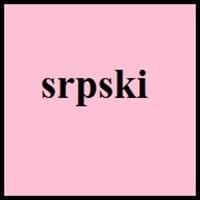Swahili vs Serbian
- Swahili language has borrowed many words from Arabic language.
- The oldest written scripts in swahili language were found in 18th century.
- Serbian language was derived from the Old Church Salvic, as the language was commonly spoken by most of Slavic people in the 9th Century.
- Serbian language is based on Stokavian dialect.
Swahili and Serbian Language History
Comparison of Swahili vs Serbian language history gives us differences between origin of Swahili and Serbian language. History of Swahili language states that this language originated in 6th century whereas history of Serbian language states that this language originated in 11th Century. Family of the language also forms a part of history of that language. More on language families of these languages can be found out on Swahili and Serbian Language History.
Swahili and Serbian Greetings
People around the world use different languages to interact with each other. Even if we cannot communicate fluently in any language, it will always be beneficial to know about some of the common greetings or phrases from that language. This is where Swahili and Serbian greetings helps you to understand basic phrases in Swahili and Serbian language. Swahili word for "Hello" is Habari or Serbian word for "Thank You" is Хвала лепо (Hvala lepo). Find more of such common Swahili Greetings and Serbian Greetings. These greetings will help you to be more confident when conversing with natives that speak these languages.
Swahili vs Serbian Difficulty
The Swahili vs Serbian difficulty level basically depends on the number of Swahili Alphabets and Serbian Alphabets. Also the number of vowels and consonants in the language plays an important role in deciding the difficulty level of that language. The important points to be considered when we compare Swahili and Serbian are the origin, speaking countries, language family, different greetings, speaking population of these languages. Want to know in Swahili and Serbian, which language is harder to learn? Time required to learn Swahili is 36 weeks while to learn Serbian time required is 44 weeks.





